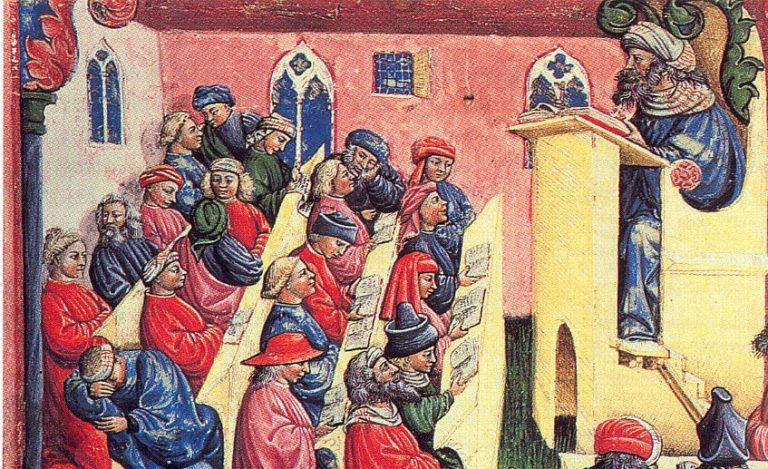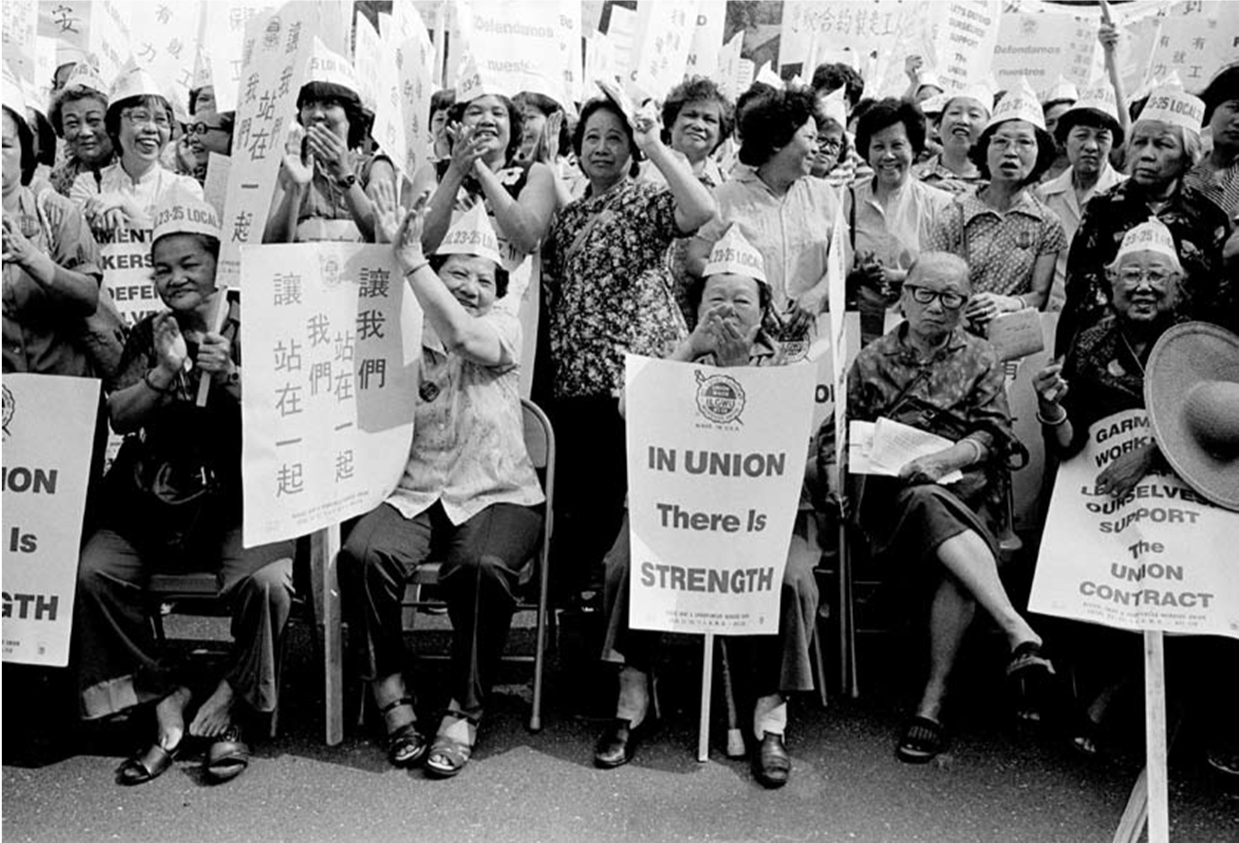The medieval studies conference at Harvard recently celebrated its 100th annual meeting, bringing together over 800 scholars and enthusiasts from around the globe. As a premier destination for medievalists, this conference not only showcases innovative research but also fosters interdisciplinary dialogues across varied topics, including Chaucer and modern literature. Hosted by the esteemed Medieval Academy of America, the event highlights the evolution of the field and underlines its growing global perspective. With captivating discussions on subjects like the Global Middle Ages and the rich historical connections across cultures, attendees are offered a unique opportunity to delve deep into the intricate tapestry of medieval studies. This gathering not only serves as a platform for presenting new findings but also invites reflection on the past and speculation about the future of this captivating academic domain.
At this gathering dedicated to the exploration of medieval scholarship, scholars from various disciplines convened to share their insights into historical frameworks and cultural narratives. The event, marking a century of academic discourse, attracted experts eager to revisit and reimagine the medieval era’s impact on contemporary thought. Enthusiasts examined themes like the complexities of Chaucer’s works in relation to modern literary interpretations, along with the significance of medieval global interactions in shaping today’s world. This conference is not just a meeting of minds; it is a vibrant celebration of history, literature, and cultural exchange that continues to inspire new generations of researchers. With sessions tailored to address a variety of medieval topics, the conference exemplifies the dynamic nature of medieval studies and its relevance in a continuously evolving intellectual landscape.
Celebrating a Century of Harvard Medieval Studies Conferences
The recent Medieval Academy of America’s centennial conference held at Harvard marked a significant milestone in the field of medieval studies. This event not only brought together over 800 academics from around the globe but also served as a homecoming for an institution deeply rooted in Cambridge, Massachusetts. Over the decades, Harvard has established itself as a leading center for medieval scholarship, offering numerous opportunities for discourse and intellectual exchange. The wide array of presentations and workshops was a testament to the vibrant community that has formed over the years, showcasing the evolution of research and perspectives within the discipline.
As scholars gathered in Harvard Yard, it became evident that the medieval studies conference was not merely a celebration of the past but an exploration of future directions in scholarship. Presenters such as Fernanda García-Oteyza made compelling connections between medieval texts and contemporary literature, exemplifying the rich dialogue that persists between past and present. This interdisciplinary approach reflects the growing importance of global perspectives in medieval studies, with discussions covering diverse topics from the Mediterranean to the Global Middle Ages.
The Global Perspective in Medieval Studies Today
This year’s conference notably emphasized the call for a more inclusive examination of the medieval world. With presentations spanning various regions—including Africa, East Asia, and the British Isles—participants engaged in discussions that broadened the traditional Eurocentric narrative of the medieval period. Assistant Professor Anna Wilson’s full-day workshop on teaching the Global Middle Ages encouraged graduate students to rethink how the medieval era is represented in academia. Such initiatives are crucial for understanding the multifaceted nature of medieval societies and recognizing their interconnectedness, thus paving the way for more comprehensive scholarship.
The dialogue around global medieval studies sheds light on how diverse cultures contributed to the medieval landscape. Research presentations revealed insights into lesser-known aspects of medieval life and commerce, such as Elena Shadrina’s work on Venetian trade agreements. By studying these historical phenomena, scholars can appreciate the complexities of medieval interactions and the extensive networks that existed long before the modern era. This broadening of focus not only enriches our understanding of history but also highlights the relevance of medieval studies in contemporary discussions about globalization.
Interdisciplinary Approaches to Chaucer and Modern Literature
A remarkable feature of this year’s conference was the discussion surrounding Geoffrey Chaucer’s influence on modern literary discourse. Participants like Fernanda García-Oteyza connected Chaucer’s exploration of rumor and poetic authority in ‘The House of Fame’ to the contemporary concerns addressed in Patricia Lockwood’s modern novel. This synthesis of medieval and modern literature exemplifies the relevance of Chaucer’s work today, raising important questions about the role of narrative in shaping public perception and truth.
The embrace of interdisciplinary approaches fosters a deeper appreciation for the connections between medieval texts and contemporary issues. By analyzing Chaucer alongside current literary voices, academics are able to unearth lasting themes such as creativity, inspiration, and the distortion of facts. This dialogue not only resurrects interest in Chaucer’s writings but also provides contemporary authors with a historical lens through which to critique modern challenges, illustrating the ongoing impact of medieval literature on current narratives.
The Rise of Interdisciplinary Dialogue in Medieval Scholarship
The Medieval Academy of America’s conference exemplifies the growing trend towards interdisciplinary scholarship within the field of medieval studies. With scholars from various departments—such as English, History, and Celtic Languages—collaborating, attendees were able to explore a more holistic understanding of the medieval era. Presentations showcased research that interwove literature, history, and cultural studies, resulting in compelling discussions that highlighted the relevance of medieval studies in a modern context.
Interdisciplinary dialogue enriches the academic landscape and creates opportunities for innovative research methodologies. By engaging with ideas across different disciplines, scholars can uncover new perspectives on familiar texts, as seen in Emily Sun’s analysis of ‘Beowulf’ through the lens of geographic and gendered distance. This shift towards a collaborative approach within medieval studies not only elevates scholarship but also demonstrates the importance of cross-disciplinary conversations in fostering a comprehensive understanding of history.
Future Directions for Medieval Studies Scholarship
As the medieval studies conference concluded, discussions naturally turned towards the future of the field. Scholars like Sean Gilsdorf emphasized the importance of envisioning new avenues for research and teaching, particularly in light of the evolving global academic landscape. The engagement of young scholars, like the graduate students participating in various workshops, signified a vibrant new generation eager to explore and challenge established narratives, thus shaping the future of medieval studies.
Future scholarship in medieval studies must adapt to encompass a wider range of perspectives and methodologies. By encouraging initiatives that prioritize diverse voices and interdisciplinary approaches, academics can ensure that the study of the medieval era remains dynamic and reflective of contemporary issues. As the field moves forward, the emphasis on global connections and collaborative inquiry will play a pivotal role in redefining the place of medieval studies within the broader array of academic disciplines.
Academics Networking at the Medieval Studies Conference
Networking at the Medieval Academy of America’s conference offered a vital platform for scholars at all levels to connect, share ideas, and foster collaborations. Graduate students found the chance to interact with established faculty and renowned experts, which is crucial for their professional development and academic growth. As Emily Sun shared, attending such conferences allows for critical engagement with one’s bibliography and provides a fertile ground for negotiating new perspectives and refining research.
These networking opportunities not only help emerging scholars form valuable connections but also allow seasoned academics to share insights and mentorship. Such engagements are fundamental in cultivating a supportive academic environment where knowledge is shared and new ideas flourish. The sense of community that conferences like this generate reinforces the notion that medieval studies is a collaborative and evolving discipline, rooted in shared passions and collective inquiry.
The Impact of COVID-19 on Medieval Studies Conferences
The recent gathering of medieval scholars marked a significant resurgence post-COVID-19 lockdowns. Many attendees, like Emily Sun, expressed renewed appreciation for the face-to-face interactions that conferences facilitate, particularly after a prolonged period of virtual engagements. The pandemic highlighted the value of in-person discussions, enabling scholars to transition from online platforms to authentic dialogues that spark creativity and innovation in their work.
The ability to connect with peers and the academic community in person enriches the scholarly experience, providing critical engagement that can often be lost in virtual communication. As the medieval studies conference embraced a diverse range of presentations and workshops, attendees benefitted greatly from the immersive academic environment. This return to live scholarship illustrates the resilience of the academic community and its commitment to advancing medieval studies even in challenging times.
Reflections on the Evolution of the Medieval Academy
Reflecting on the historical significance of the Medieval Academy of America encapsulates the progression of medieval studies over the last century. Founded in the early 1920s, the academy has grown from a local initiative in Boston into an internationally recognized institution that bridges disciplines and cultures. The echoes of its founding principles resonate today as scholars engage in dialogues that honor the past while exploring the future of their research.
As Sean Gilsdorf noted, honoring the academy’s storied history allows members to address the challenges and triumphs of the field. Marking these milestones encourages a collective vision for the future of medieval scholarship, emphasizing the importance of perseverance and innovation as the discipline continues to evolve. By embracing historical reflection alongside contemporary exploration, the academy ensures that medieval studies remain relevant and impactful in today’s academic environment.
The Role of Harvard in Advancing Medieval Studies
Harvard’s longstanding commitment to medieval studies positions it as a pivotal center for scholarship in the field. The university’s historical association with the Medieval Academy of America reinforces its role as a leader in the humanities, providing resources and support for both emerging and established scholars. With its extensive library collections and expert faculty, Harvard fosters an environment conducive to the rigorous study of medieval texts and cultures.
Furthermore, the university’s emphasis on interdisciplinary collaboration reflects a broader movement in academia towards integrating diverse perspectives. By facilitating partnerships across various departments, Harvard enhances the academic landscape of medieval studies. This strategic alignment not only enriches scholarship but also strengthens the global discourse surrounding the medieval era, ensuring that Harvard remains a crucial player in shaping the future of the field.
Frequently Asked Questions
What is the significance of the Medieval Academy of America’s conference for scholars in medieval studies?
The Medieval Academy of America’s conference is a premier scholarly event that celebrates the evolution of medieval studies over the past century. It convenes academics from around the globe, fostering interdisciplinary dialogue and showcasing the latest research in medieval studies. This conference not only honors the rich history of the field but also encourages scholars to envision future directions for research and inquiry within the discipline.
How does Harvard contribute to the field of medieval studies through its conferences?
Harvard plays a pivotal role in advancing medieval studies by hosting influential conferences like the Medieval Academy of America’s annual meeting. As a historical center for medieval scholarship, Harvard attracts leading academics and Ph.D. candidates to share their research, discuss emerging themes, and collaborate on innovative approaches to studying the Global Middle Ages.
What themes are typically explored in presentations at medieval studies conferences?
Presentations at medieval studies conferences often cover a range of themes including the Global Middle Ages, medieval trade agreements, and literary analyses linking medieval texts to modern literature. Scholarly discussions provide insights into cultural exchanges, social structures, and the interplay between reality and fiction, thereby enriching our understanding of medieval societies.
What types of workshops and sessions can one expect at a medieval studies conference?
Attendees at a medieval studies conference can expect a diverse array of workshops and sessions, including plenary lectures, roundtable discussions, and specialized workshops focused on teaching methodologies. Topics may range from medieval literature and culture, such as Chaucer and modern literature, to specific regional studies exploring the medieval Mediterranean or Islamic societies.
How do conferences benefit graduate students in medieval studies?
Conferences offer invaluable opportunities for graduate students in medieval studies to present their research, network with established scholars, and engage in meaningful discussions. These events facilitate the transition from digital learning to in-person dialogue, allowing students to obtain feedback on their work and connect with peers and mentors in the academic community.
What role do global perspectives play in contemporary medieval studies?
Global perspectives are increasingly important in contemporary medieval studies, as scholars examine medieval societies beyond traditional Eurocentric narratives. The integration of diverse cultural contexts, such as Central and East Asia, Africa, and the Islamic regions, enriches the academic discourse, encouraging a more comprehensive understanding of the medieval world and its complexities.
How can attendees prepare for a medieval studies conference?
Attendees can prepare for a medieval studies conference by reviewing the program schedule, selecting sessions of interest, and engaging with relevant research materials beforehand. Networking with fellow scholars, both in person and through social media platforms, is also crucial for maximizing the conference experience and fostering collaborative opportunities in the field.
What is the impact of the COVID-19 pandemic on medieval studies conferences?
The COVID-19 pandemic has significantly reshaped the format and frequency of medieval studies conferences, prompting many to transition to virtual platforms. However, as in-person gatherings have resumed, scholars express a renewed appreciation for the face-to-face interactions that foster collaboration and dialogue, emphasizing the importance of community in academic scholarship.
In what ways does the Medieval Academy of America promote interdisciplinary scholarship?
The Medieval Academy of America promotes interdisciplinary scholarship by encouraging presentations that bridge various fields, such as history, literature, and cultural studies. This interdisciplinary approach allows scholars to explore complex themes such as the relationship between medieval texts and modern interpretations, thereby broadening the scope of medieval studies.
| Key Points |
|---|
| The Medieval Academy of America celebrated its 100th annual meeting at Harvard University, showcasing the evolution of medieval studies. |
| Over 800 academics from 23 countries participated in workshops, presentations, and discussions, highlighting the interdisciplinary nature of medieval studies. |
| Presentations included topics on medieval societies across the globe, emphasizing a broader view of medieval studies. |
| Fascination with the historical significance of the conference and its role in shaping future scholarship was expressed by attendees. |
| Scholars presented on various topics, including trade agreements and literary interpretations, fostering meaningful academic interaction. |
| The conference served as a homecoming for the Medieval Academy, last held at Harvard for its 50th anniversary in 1975. |
Summary
The medieval studies conference held at Harvard University marked a significant milestone for the field, celebrating a century of scholarly pursuit and innovation. This gathering not only reflected on the rich history of medieval studies but also portrayed its evolving nature in a global context. With an impressive turnout of over 800 academics, the conference emphasized the importance of interdisciplinary dialogue and the expansion of medieval studies to encompass diverse cultures and perspectives. Moving forward, the medieval studies conference promises to illuminate new directions and inspire the next generation of scholars in this captivating field.



